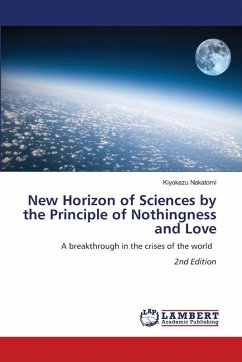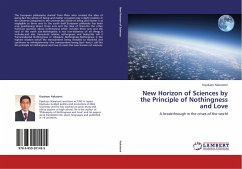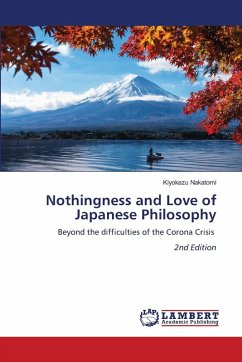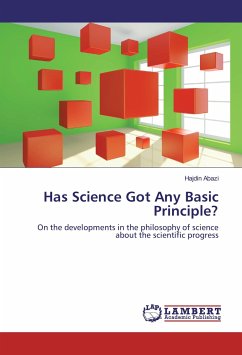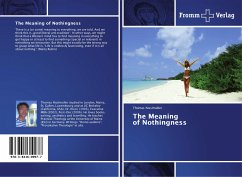The European philosophy started from Plato who created the idea of being. But the whole of being and matter occupied only a slight position in the universe. Compared to the universe, the whole of being and matter is as negligible as three ants to the earth itself. European philosophy has been only questioning about three ants and the idea of them. On the other hand, we question about nothingness which includes three ants and the void of the earth size. Nothingness is not non-existence of all things. It includes, and also transcends relative nothingness and being. We call it Transcendental Nothingness or Absolute Nothingness. Nothingness is the highest wisdom which the transcendent being revealed to mankind and continues to infinity ( eternity~the transcendent being, God~love ).I call this the principle of nothingness and love. It creates the new horizon of sciences.
Bitte wählen Sie Ihr Anliegen aus.
Rechnungen
Retourenschein anfordern
Bestellstatus
Storno

